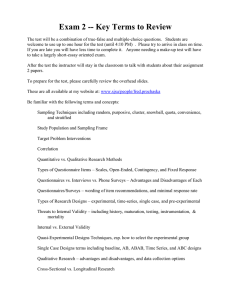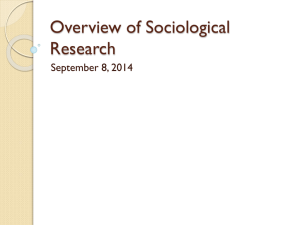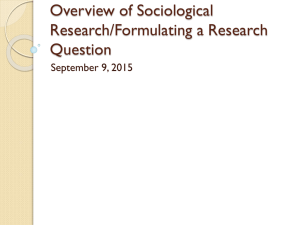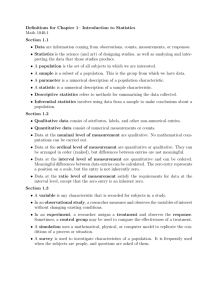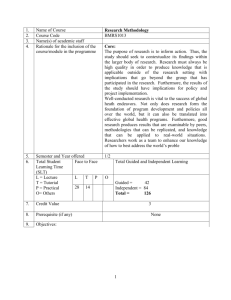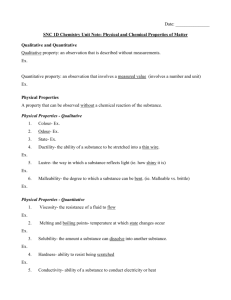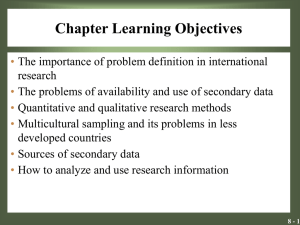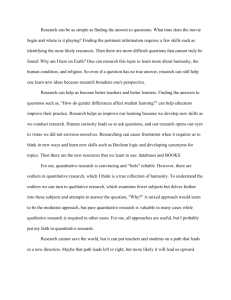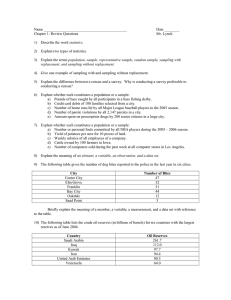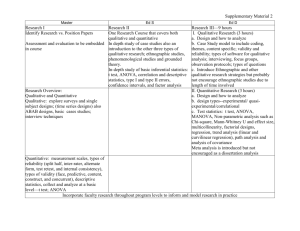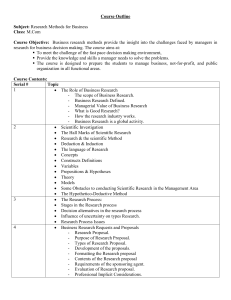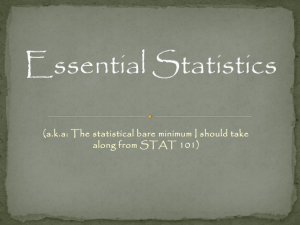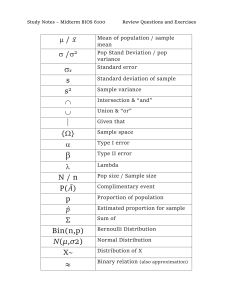law 2208 social research methods
advertisement
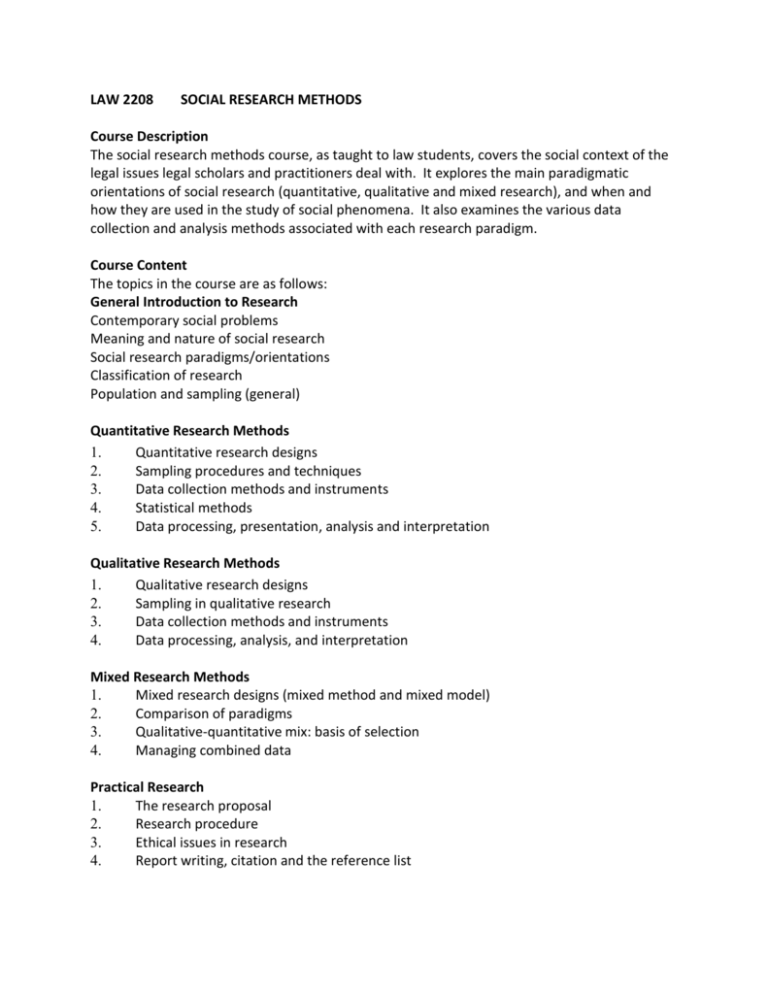
LAW 2208 SOCIAL RESEARCH METHODS Course Description The social research methods course, as taught to law students, covers the social context of the legal issues legal scholars and practitioners deal with. It explores the main paradigmatic orientations of social research (quantitative, qualitative and mixed research), and when and how they are used in the study of social phenomena. It also examines the various data collection and analysis methods associated with each research paradigm. Course Content The topics in the course are as follows: General Introduction to Research Contemporary social problems Meaning and nature of social research Social research paradigms/orientations Classification of research Population and sampling (general) Quantitative Research Methods 1. Quantitative research designs 2. Sampling procedures and techniques 3. Data collection methods and instruments 4. Statistical methods 5. Data processing, presentation, analysis and interpretation Qualitative Research Methods 1. Qualitative research designs 2. Sampling in qualitative research 3. Data collection methods and instruments 4. Data processing, analysis, and interpretation Mixed Research Methods 1. Mixed research designs (mixed method and mixed model) 2. Comparison of paradigms 3. Qualitative-quantitative mix: basis of selection 4. Managing combined data Practical Research 1. The research proposal 2. Research procedure 3. Ethical issues in research 4. Report writing, citation and the reference list Course Objectives This course is aimed at providing law students with the requisite knowledge and skills to plan, conduct and evaluate empirical social science research. It aims at engaging law students in learning about contemporary social problems, the research process, the basic techniques and tools/instruments employed in the collection and analysis of data, and the reporting and scholarly writing process. Students also learn ways of gaining knowledge of the social world, the relationship between theory and research, and the place of values and ethics in the practice of research. Learning Outcomes By the end of the course, students should have sufficient knowledge and skills to: 1. Read and appreciate social research literature 2. Problematize a legal/social issue for research 3. Write a research proposal 4. Conduct research of a modest magnitude, and 5. Write a report to a specified standard. Methods of Instruction 1. At the commencement of the course, students are availed with reading lists, which indicate the topics to be covered, and the respective reading materials for the respective topics. It is expected that the student uses this list in preparation for each lecture. 2. The students are introduced to each topic and guided on the principles therein. Thereafter, students will be given problem questions for discussion in class. Students are further encouraged to also formulate their problems for discussion during the lectures. Assessment 1. A coursework will be administered during the coursework week to be marked out of 30 marks. 2. An examination will be given at the end of the semester to be marked out of 70 marks.
